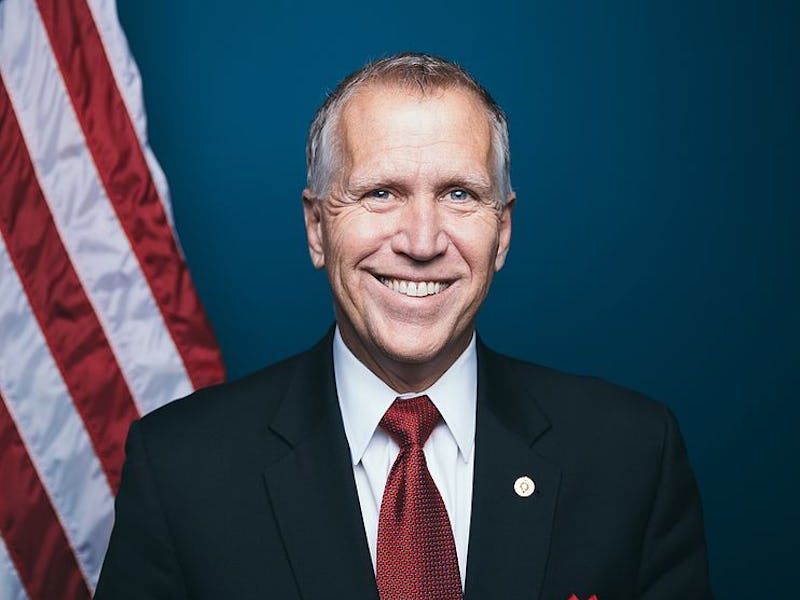Republican Senator Hints that Congress Will 'Likely' Look at Pot Legislation
Politicians have ignored the issue for decades.

Legal weed might be on Congress’s agenda this year. According to a letter sent to a marijuana legalization advocate by Republican Senator Thom Tillis on January 25, the issue will likely be up for discussion in the coming months.
The letter was addressed to Rod Kight, a North Carolina resident who had previously contacted Senator Tillis to voice his support for the Marijuana Justice Act of 2017. Kight is a cancer survivor who used medical marijuana to alleviate the deleterious side effects of chemotherapy; he now works as an attorney advocate for the National Organization for the Reform of Marijuana Laws (NORML).
In the letter, Senator Tillis pledged to consider Kight’s arguments for legalization if and when weed legislation comes up for debate:
As you may know, I am a member of the Senate Judiciary Committee, and this issue will likely be discussed this Congress. If this issue comes before the Judiciary Committee or the full Senate, I will carefully consider everything you have said in making a decision on what is best for North Carolina and the country.
This may sound like a tepid commitment, but the mere acknowledgement that federal marijuana legislation might be on the docket is a big deal. Ever since Attorney General Jeff Sessions rescinded an Obama-era policy that allowed states to regulate marijuana without interference from the federal government, the 30 states that have enacted some form of marijuana legalization have been in direct conflict with federal policy.
As it stands, marijuana is considered a Schedule 1 drug as part of the Controlled Substances Act. This means that marijuana is regarded by the Drug Enforcement Agency as having “no accepted medical use and a high potential for abuse.” Marijuana’s Schedule 1 status puts it in the same tier as heroine, LSD, and ecstasy — completely prohibited under federal law.
The only thing that could change the scheduling system and bring a definitive end to Sessions’ war on weed is a legislative solution. Marijuana advocate Dale Sky Jones outlined the broad effects of Congressional action in an op-ed last month for NBC News:
In the absence of interest from the executive branch, only Congress can take permanent action to remove cannabis from Schedule 1 and the Controlled Substances Act entirely. Only Congress can opt to regulate retail cannabis at the federal level just like alcohol, tobacco and firearms, to force the Drug Enforcement Agency to allow for more scientific research and the Food and Drug Administration to allow cannabinoid compounds in its regulatory process, which is needed for its acceptance in mainstream medicine.
The conflict between federal and state weed policy has been an intractable problem since California first legalized medical marijuana in 1996. Over the past 21 years, Congress has largely ignored the disconnect, resulting in unclear policy and uneven enforcement of the federal marijuana ban. But with a majority of states and citizens now in favor of legal marijuana, perhaps Congress has decided to finally solve the bureaucratic quagmire.
Senator Cory Booker tried to kickstart the process last August, when he introduced the Marijuana Justice Act of 2017. If enacted, the bill would legalize marijuana at a federal level and rectify the harmful effects of the war on drugs by expunging all federal convictions for the possession and use of marijuana. Last month, companion legislation was introduced in the House of Representatives, marking the first time marijuana legislation has been active in both legislative bodies. Both bills are awaiting committee assignment.
If the Senate pursues a legislative solution for weed, any proposal will be reviewed by the Senate Judiciary Committee. Senator Tillis is one of the committee’s 21 members (as is Senator Booker), so his admission that marijuana legislation will likely be up for discussion hints that a serious effort could be on the horizon.